How to deal with a missing player in your D&D game
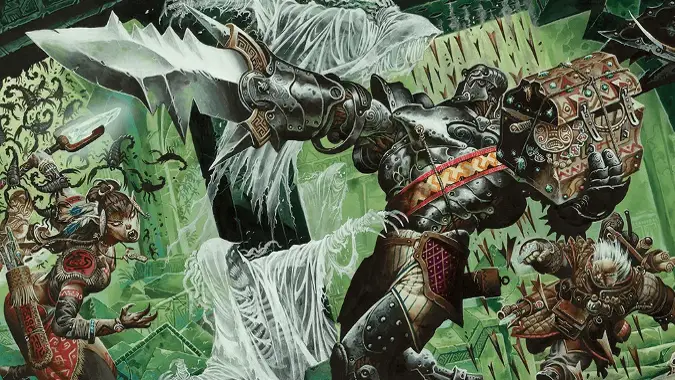
Somebody having to step away from a recurring session of Dungeons and Dragons is something every party will have to contend with eventually. It happened to us in our semi-regular D&D sessions here at Blizzard Watch — and there are absolutely terrible ways to handle it. The fact is, Dungeons and Dragons (or any RPG, for that matter) is a social game and it requires a commitment in terms of time and we can’t expect everyone to make every single session. Sometimes real life gets in the way and we have other commitments we have to live up to, or maybe we can’t attend due to circumstances like illness.
When you end up down a player for a session, there are various ways to handle it. We’re going to talk about them here, so that if it happens to you, the pitfalls of these situations can hopefully be mitigated. Before we do, though, there’s one thing I feel must be stated — always respect your players and the way they play their characters, and never impose a choice made by their character on them. It’s one thing to say that their character gets kidnapped or locked in a cell or supply another in-game reasoning why they’re otherwise unable to participate while they’re gone. That’s part of the story. Moreover, it’s not making a decision as their character. This is an important distinction. Saying to a player who had to miss a week “Oh yeah, your character gave away all of his gear to charity, shaved his head and joined a monastic order” violates player agency and really isn’t cool.
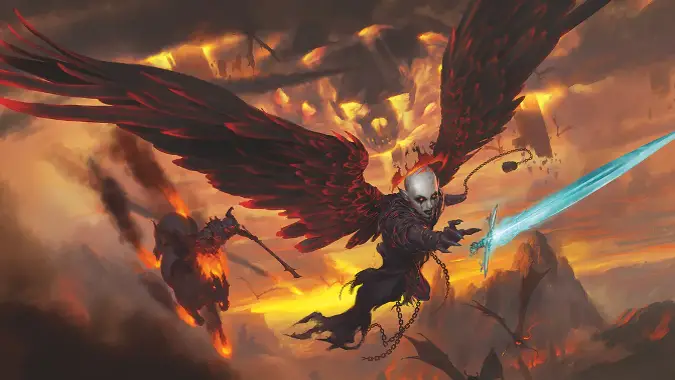
The background player option
One way to deal with an absent player, especially if the previous session didn’t end in a convenient way to explain their absence, is to simply put their PC in the back of the group and not have them do or say much of anything. If a dialogue comes up, they don’t really participate. If a combat breaks out, they hang back and don’t really do much. You can just kind of ignore them while maintaining the presence of the character once the next session arrives.
The pros of this approach are, the character is still there once the player is available and in general it’s the most seamless approach, but it doesn’t always make the most sense. It can be hard to explain why Roderick, the pompous Paladin who usually does most of the talking, is suddenly quiet. Why is Phlogiston the Mage not throwing Fireball at everything that moves, especially if his party is also within the blast radius? (Again, Phlogiston?)
A slight variant on this approach is possible when you happen to have a more natural break point between sessions. If you ended the session your absent player was last present for in an inn, it’s easy enough to say “Marissa the Monk left you a note saying she had to check in with her Monastic Order and that she’ll catch up when she gets a chance” and then the PC simply isn’t there at all. It can be challenging to reintroduce the character if you end up with the characters deep in a dungeon or had to stop between combat encounters. Still, it completely removes the character from the session, and thus, gets them out of your hair.
Frankly, as a DM, I vastly prefer one of these two options because I feel like I have enough to juggle without trying to keep someone else’s character in mind as well. But there are other options I make use of.
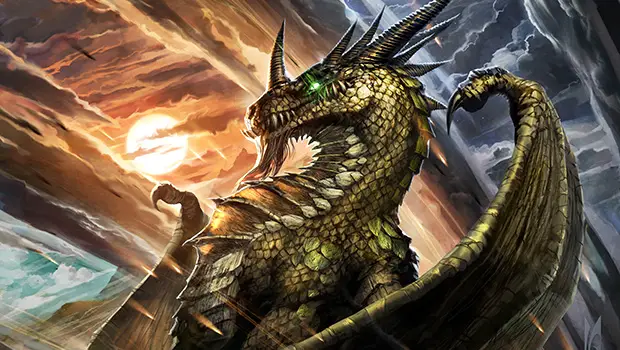
Their absence can drive the plot
Let’s say, hypothetically, you have a player named Mitch who is playing a Kenku Bard named Fizzl. Mitch can’t make a session, and the last session he was at, the party settled down for a long rest. You could just have Fizzl follow the others around and be in the background. Your campaign so far is set on a deserted island and there’s no real way he could get a message from home and not be present for a week. So what do you do?
You could do what I did and have a bunch of Githzerai Monks capture him, so that the rest of the party is motivated to look for him.
This raises a lot of questions the players will be motivated to answer — where did Fizzl go? Why didn’t we notice his departure? It gets the party motivated to look for him and thus moves the story along. As the DM, it means he’s safely off screen and I don’t have to try and role play someone else’s character much. Fizzl showed up at the end of the session when the players worked out where the Githzerai had taken him.
You can do this too. If your rogue can’t make a session and your party is in the middle of hunting down the Dread Slavers Gang, well, nothing like having her head off to look for them by herself and now the party has to go running to catch up. Your Paladin isn’t going to be here when the next session about the Cult of the Brain Eaters finally shakes out? The group checks in his room and there’s clearly been a struggle and clues that point them to where the Cult is holed up. Hopefully, by the time the party catches up to where the missing player is, they’ll be ready to come back and you can bring everyone together for the end.
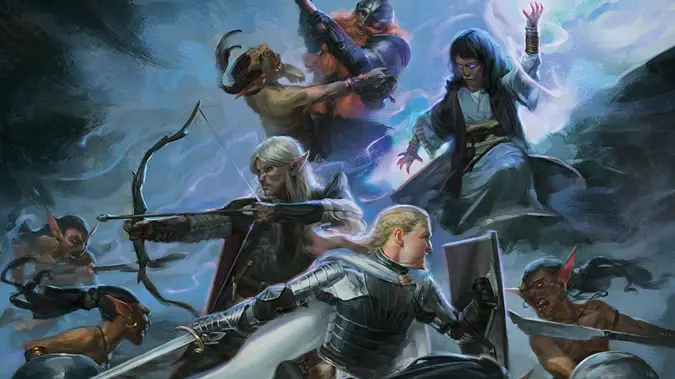
If you play their character, do so carefully
If you and your player are on the same page and/or can communicate some elements — perhaps you can text your missing player with the general situation and ask what they would do if they were there — you can actually run the missing PC as an NPC for the session. Really in synch groups can even have another player do this, running both their own character and the character of the missing player. Please note, this requires a great deal of trust and it should be taken seriously and treated with some respect.
Don’t make their character be completely out of character by doing something they would never do. It’s not funny, and it will generate hurt feelings super quick if you do, and if you intend for that person to come back and play that character then having them return to discover their PC got married to a Flumph might well end in them quitting the game — if you’re lucky. A player letting you or someone else at your table pilot their character is a show of trust, and doing things you know they’d hate and never do with their character is a violation of that trust.
But if you’re willing to be respectful, this can work. Mitch trusted me with Fizzl and before that, I was trusted with Mischief our Tiefling Rogue, and I like to believe I didn’t do them any disservices with my portrayals. Fizzl even helped save the day after he got kidnapped, so it worked out.
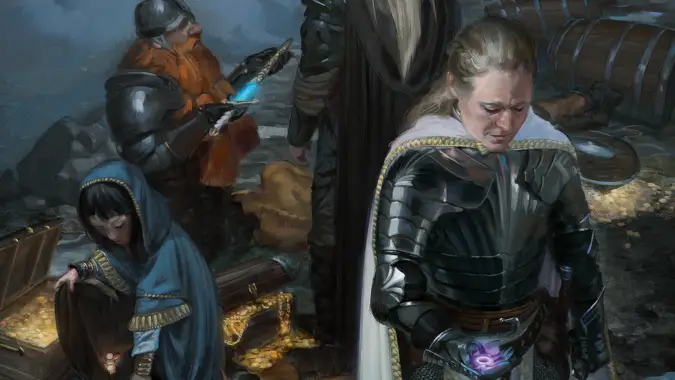
It comes down to respect
Your players are already trusting you a lot as DM — trusting you to help them tell stories and have fun adventures, to be equal parts referee and director as they range around like an improv theatre troupe that also kills stuff and loots it. If they can’t make a session, they’re trusting you not to punish them for it by doing something to or with their character that veers beyond that relationship of trust. So don’t veer. Stay in your lane as the DM and respect that trust, show you deserve it.
In the end, it’s the only way the game can work.
Please consider supporting our Patreon!
Join the Discussion
Blizzard Watch is a safe space for all readers. By leaving comments on this site you agree to follow our commenting and community guidelines.
 @MatthewWRossi
@MatthewWRossi



